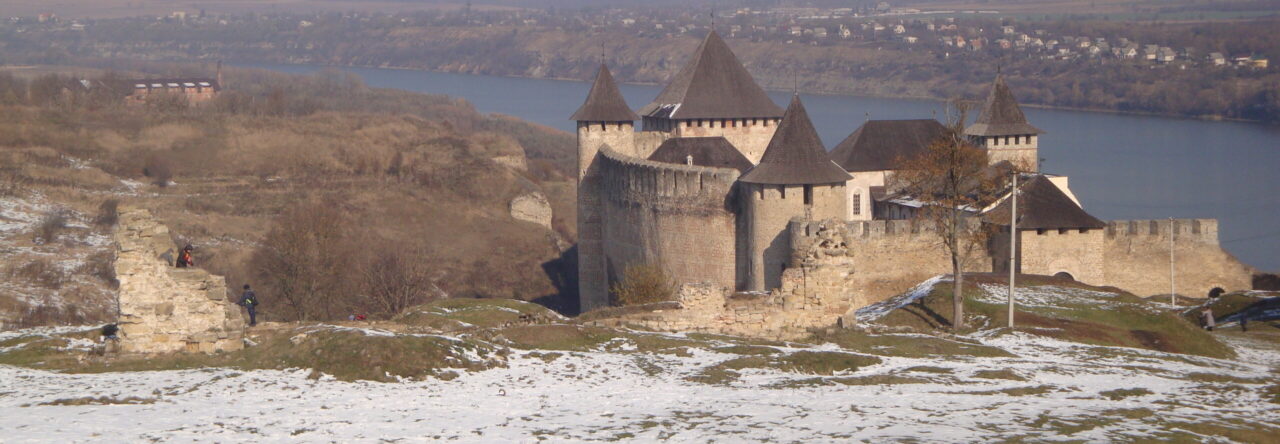Russlands Angriffskrieg, innere Konflikte in Bosnien-Herzegowina, Serbien oder Georgien – Beispiele wie diese verdeutlichen, wie wichtig fundiertes Wissen über politische Entwicklungen in Ost- und Südosteuropa ist. Nun wird die Forschung dazu deutlich gestärkt. Am Leibniz-Institut für Ost- und Südosteuropaforschung (IOS) nimmt ein neuer Arbeitsbereich Politik seine Tätigkeit auf. Damit entsteht eine der deutschlandweit größten politikwissenschaftlichen Forschungseinheiten mit Schwerpunkt östliches Europa. Erste Projekte befassen sich u. a. mit Friedensverhandlungen zum Krieg gegen die Ukraine, mit neuen Perspektiven der Abschreckungspolitik oder mit Digitalisierungspolitik unter Putin.
Das IOS mit Sitz in Regensburg ist eine der international bekanntesten Einrichtungen mit Forschungsschwerpunkt östliches Europa. Hier arbeiten Wissenschaftler*innen verschiedener Disziplinen zusammen, um Entwicklungen im Gebiet der Staaten der ehemaligen Sowjetunion, inklusive des Südkaukasus und Zentralasiens, sowie Südosteuropas zu erklären. Bislang gab es die Arbeitsbereiche Geschichte und Ökonomie sowie seit 2014 eine kleinere politikwissenschaftliche Forschungsgruppe. Letztere wird nun zu einem dauerhaften Arbeitsbereich ausgebaut und dabei deutlich vergrößert.
2022 hatte eine externe Expertenkommission die Arbeit der Forschungsgruppe und eine Konzeption für den neuen Arbeitsbereich als exzellent bewertet. Die Leibniz-Gemeinschaft, zu der das IOS gehört, und die Gemeinsame Wissenschaftskonferenz von Bund und Ländern befürworteten daraufhin die Institutserweiterung.
Finanzierung um 900 000 Euro erhöht
Mit dem neuen Arbeitsbereich entstehen zunächst fünf neue Stellen für Forschende sowie vier in den Bereichen Verwaltung und Service. Hinzu kommt die Leitungsposition: Diese bekleidet die Politikwissenschaftlerin und Völkerrechtlerin Prof. Dr. Cindy Wittke, die renommierte Expertin unter anderem für Friedensverhandlungen im russischen Angriffskrieg ist und zuvor schon die Forschungsgruppe geleitet hat. Verbunden damit übernimmt Wittke eine Professur für Normativität in der internationalen Politik an der Fakultät für Rechtswissenschaft an der Universität Regensburg. Im Zuge der Erweiterung erhöhen Bund und Länder ihre Finanzierung des IOS um knapp 900 000 Euro jährlich.
Wittke: „Wir arbeiten am IOS seit Jahren mit internationalen Forschenden aus verschiedenen Disziplinen zusammen, viele davon stammen aus dem östlichen Europa. Unsere Stärke ist es, dass wir die Region in all ihren Facetten sehr gut kennen. Auch in schwierigen Zeiten für die Forschung in und über die Region werden wir mithilfe unserer Netzwerke und durch moderne Forschungsmethoden neues Wissen über das östliche Europa gewinnen. Unser Ziel ist, damit auch zu den allgemeinen Debatten in Politikwissenschaft, Internationalen Beziehungen und angrenzenden Disziplinen beizutragen. Wir wollen uns aber nicht nur darauf beschränken: Gerade der Krieg gegen die Ukraine hat gezeigt, dass die Öffentlichkeit viel über das östliche Europa wissen will. Deshalb werden wir weiter Journalist*innen bei Recherchen unterstützen sowie Politikberatung und andere Formen der Wissensvermittlung anbieten, beispielsweise an Schulen.“
Themenfelder der Forschung im neuen Arbeitsbereich sind unter anderem Friedens- und Konfliktforschung, Internationale Beziehungen mit besonderen Bezügen zum Völkerrecht und vergleichende Politikwissenschaft. Erste Projekte befassen sich mit den Politiken des Völkerrechts im östlichen Europa, ungelösten Territorialkonflikten, der Digitalisierungspolitik in autoritären Staaten wie Russland und Belarus oder mit neuen Funktionen und Formen von Abschreckungspolitik.
Der neue Arbeitsbereich soll dazu beitragen, Lücken in der deutschen Forschungslandschaft zu füllen. Wittke: „Nach dem Kalten Krieg wurde die politikwissenschaftliche Forschung zu Ost- und Südosteuropa stark zurückgebaut. Erst nach der Annexion der Krim 2014 hat ein Bewusstseinswandel eingesetzt, der sich nun mehr und mehr in den akademischen Strukturen niederschlägt. Unser Arbeitsbereich wird der erste in Deutschland sein, der neben Osteuropa auch systematisch und langfristig politikwissenschaftlich zu Südosteuropa forscht.“
Regensburg als führender Standort für Area Studies ausgebaut
IOS-Direktor Prof. Dr. Ulf Brunnbauer: „Dass diese Forschung jetzt in Regensburg möglich wird, ist kein Zufall: Hier bildet das IOS zusammen mit der Universität Regensburg einen international führenden Standort für Regionalwissenschaften, die sogenannten Area Studies. Nur in diesem Umfeld konnten wir auch politikwissenschaftliche Spitzenforschung zu Ost- und Südosteuropa etablieren. Die Einrichtung des neuen Arbeitsbereichs Politik ist eine große Auszeichnung für unser Institut und den Wissenschaftsstandort Regensburg. Vor allem aber ist sie Beleg für die herausragende Arbeit von Cindy Wittke und ihrem Team.“
Dekan Prof. Dr. Alexander Graser von der Fakultät für Rechtswissenschaft an der Universität Regensburg ergänzt: „Die Fakultät für Rechtswissenschaft freut sich auf die Zusammenarbeit mit Cindy Wittke als Kollegin. Ihre theoretisch und empirisch fundierte Forschung an der Schnittstelle von Völkerrecht und internationaler Politik sehen wir als Bereicherung an. Die Denomination ihrer Professur – Normativität in der internationalen Politik – könnte vor dem Hintergrund aktueller politischer Entwicklungen kaum relevanter sein“.

